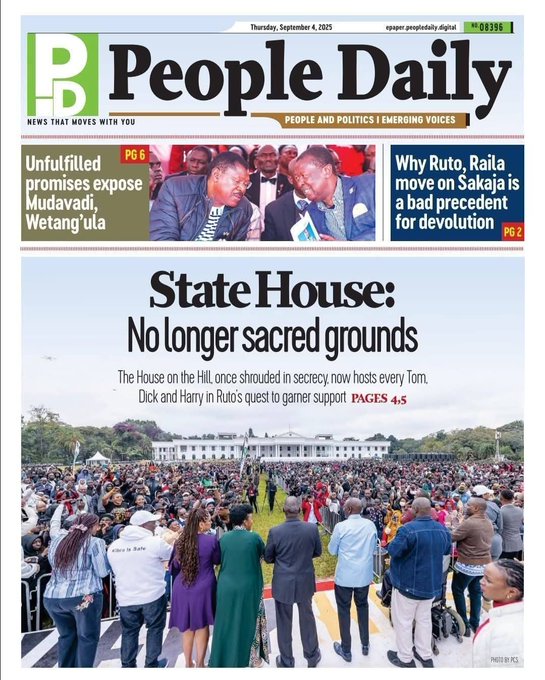NAIROBI, Kenya – President William Ruto has defended his decision to open up State House to grassroots groups, dismissing criticism that the official residence of the Head of State has lost its exclusivity.
Responding to a recent media article that claimed “the House on the Hill is no longer sacred,” Ruto said he makes no apologies for demystifying the seat of power.
In a brief statement shared on social media, the President wrote: “Bottom Up it is.”
The phrase, which formed the backbone of Ruto’s 2022 presidential campaign, underscores his continued push for the Bottom-Up Economic Transformation Agenda (BETA) — designed to uplift ordinary Kenyans, especially those in the informal sector such as boda boda riders, small traders, and small-scale farmers.
The article had accused State House of “hosting every Tom, Dick and Harry.” But Ruto countered that the grounds of State House belong to the people and should reflect their voices and aspirations.
In recent weeks, the President has hosted a string of grassroots forums and delegations at State House:
- On August 9, 2025, he convened an economic empowerment forum that brought together more than 15,000 Nairobi residents to discuss healthcare reforms and access to a Sh13 billion Social Health Authority fund.
- On August 7, 2025, Ruto welcomed national officials from the boda boda sector, defending riders against calls to ban them from major towns and recognizing their role in both the economy and his 2022 election victory.
- On August 27, 2025, he hosted a delegation from Kiambu County that included religious leaders, youth representatives, and small business owners.
Through such engagements, Ruto has sought to contrast his presidency with what he calls the politics of “dynasties,” positioning himself as a leader for the hustler nation.
Initiatives like the Hustler Fund, which provides low-interest loans to small-scale entrepreneurs, remain central to his Bottom-Up approach.
By opening State House to ordinary citizens, Ruto signals that leadership, once confined to political elites, is now a shared space where every Kenyan has a voice.




